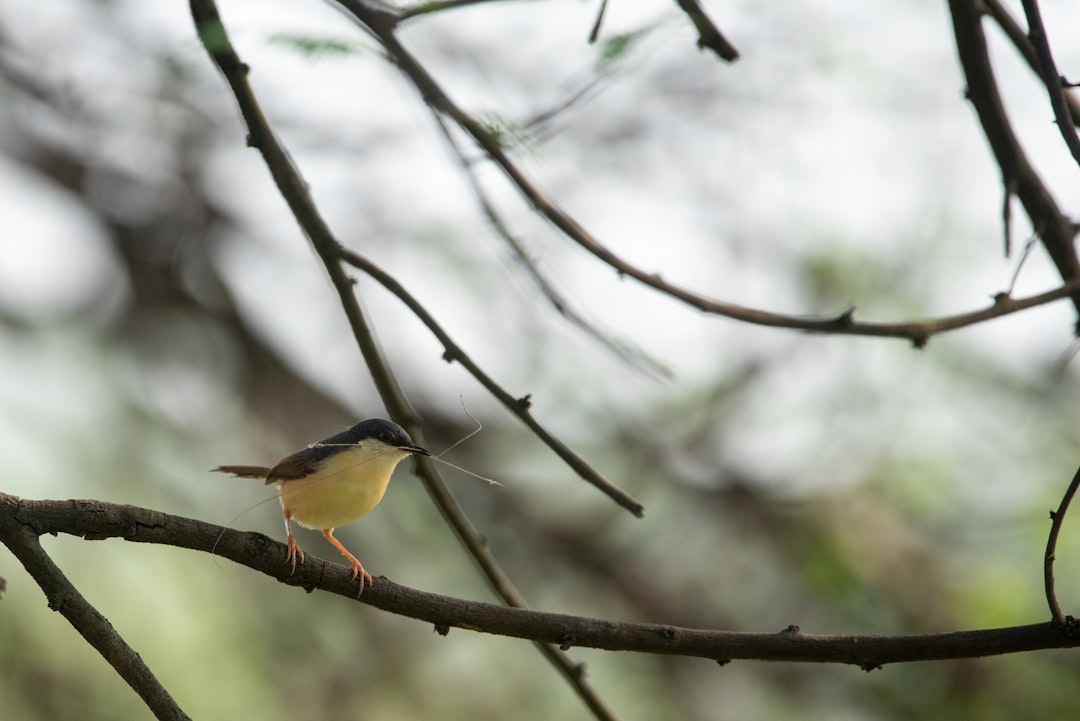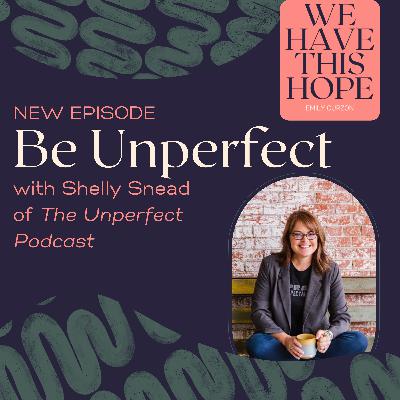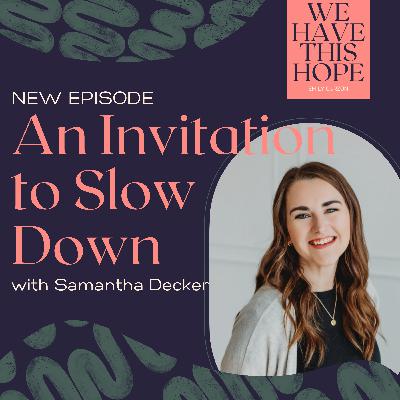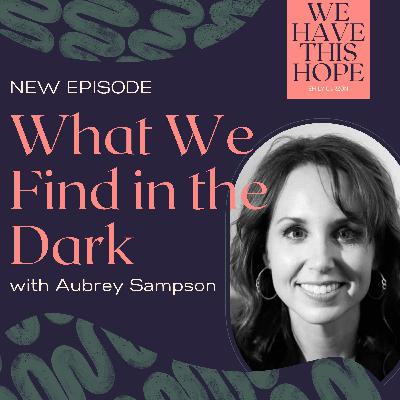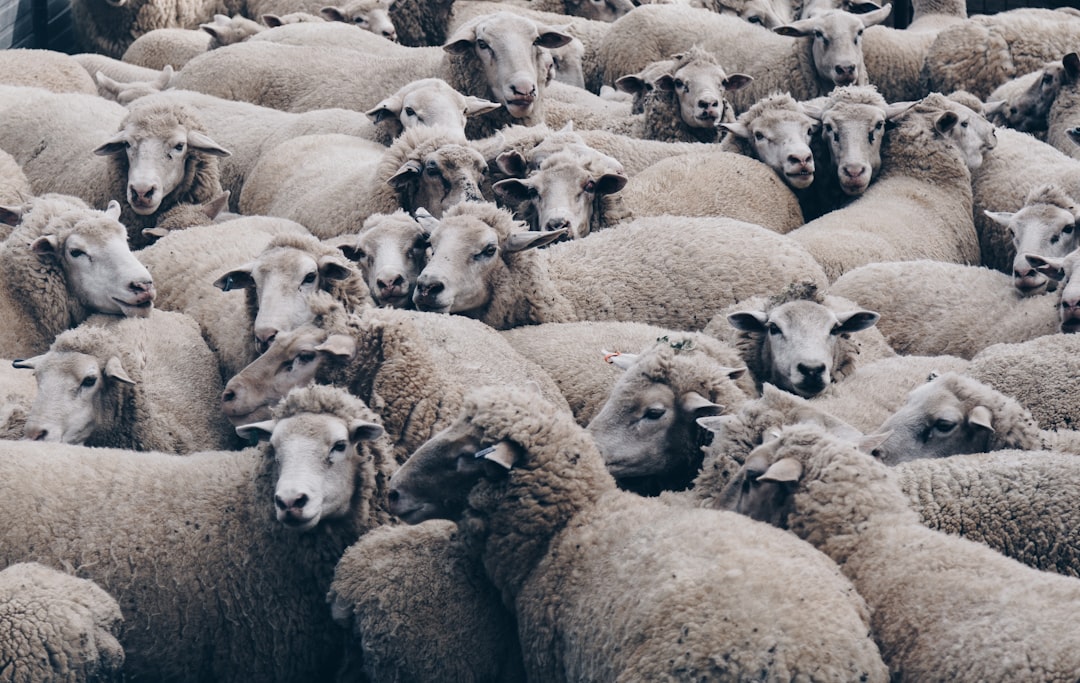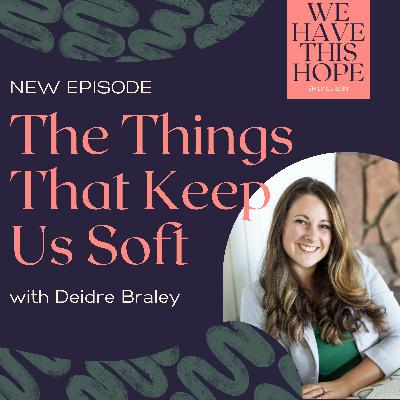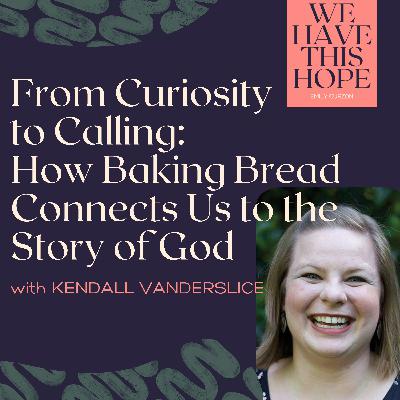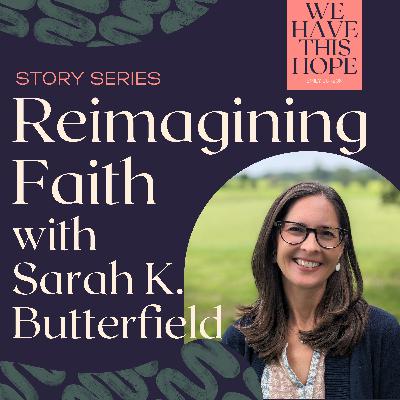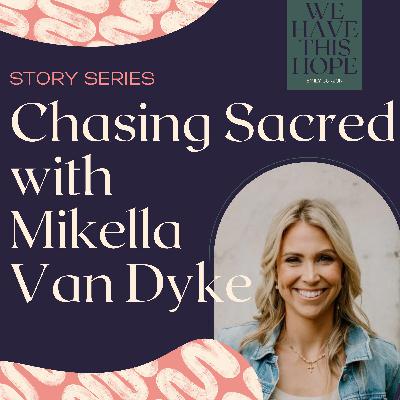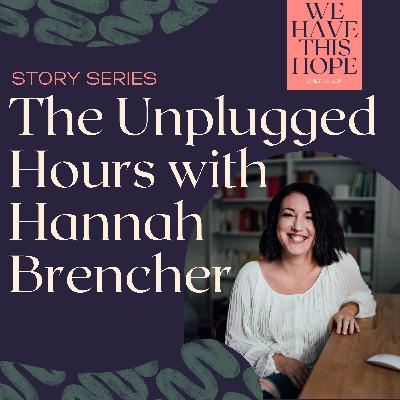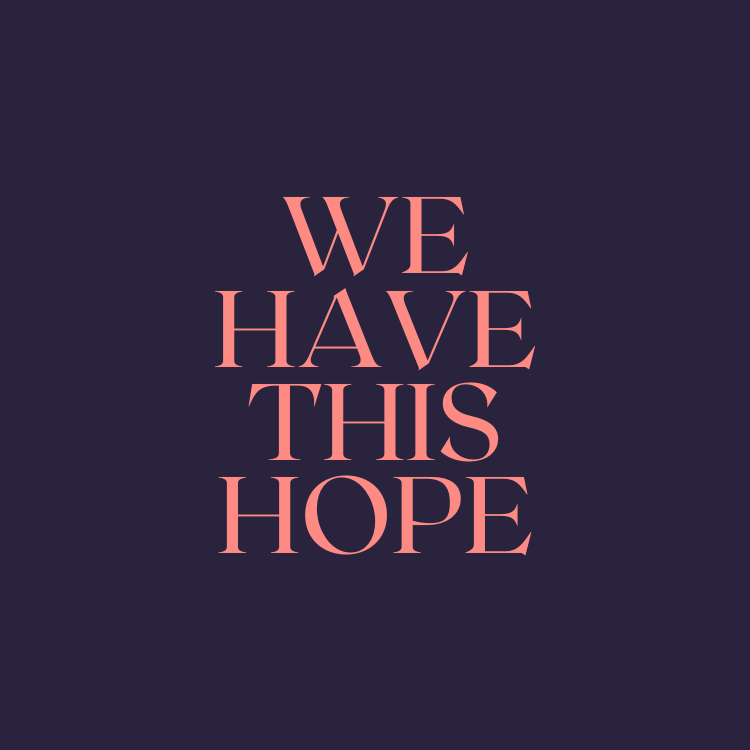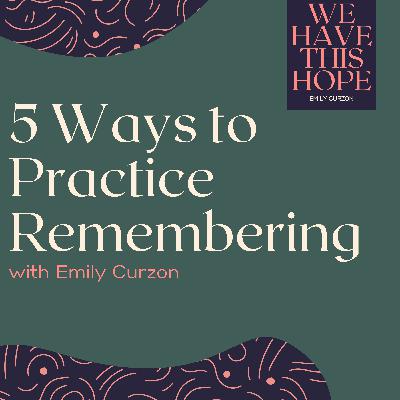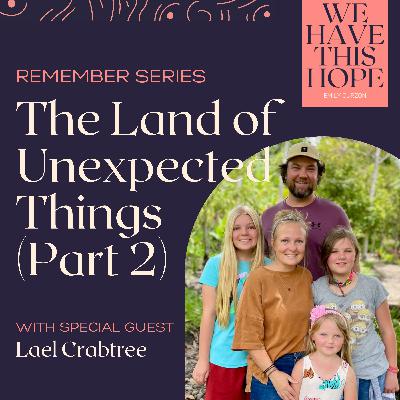Discover We Have This Hope
We Have This Hope

We Have This Hope
Author: Emily Curzon
Subscribed: 1Played: 9Subscribe
Share
© Emily Curzon
Description
WHTH exists to equip others in the art of remembering God’s work in their lives and the practice of telling others about it.
wehavethishope.substack.com
wehavethishope.substack.com
57 Episodes
Reverse
“Birding puts me back in that place of expectation, that place of hopefulness, that place of watching and waiting.” - Courtney EllisSo, what is birding, and what in the world does it have to do with hope? How could it possibly intersect with our experience of grief?Today’s conversation with author and pastor Courtney Ellis will invite you into a world that is happening all around you, but you may have never noticed. Courtney shares how birding—or bird-watching for the newbies like me—is more than mere observation; it’s a deliberate act of attentiveness and presence. It awakens us to God’s good work in creation and allows us to settle into His care for us. In the episode, Courtney explains how birding became a spiritual practice for her, especially during the heightened isolation of the pandemic and the wake of her grandfather’s death. Her story is one of hope and grief and delight with a side of practical application. This one might be the unicorn episode for those of you who need something to do with all your thinking…you know who you are.Courtney Ellis is author, speaker, pastor, and host of “The Thing With Feathers Podcast.” She’s also a birder, encourager, and inspiration-giver based in Orange County, California where she lives with her husband (also a pastor!) and three children. Together they serve Presbyterian Church of the Master.Courtney’s speaking credentials include Wheaton College, MomCo, faith-based retreats, women’s retreats, birding festivals, and dozens of churches, from mainline to evangelical. She holds a Master’s degree in English literature from Loyola University and a Master’s of Divinity from Princeton Theological Seminary, and her seven books have been published with Tyndale House, IVP, and Broadleaf.In this episode, we chat mostly about her book Looking Up: A Birder’s Guide to Hope Through Grief. It’s lovely and available to read right now. Connect with Courtney in all the ways you might connect with someone online:* Substack* Instagram* Her Website* Her podcast - The Thing with Feathers And don’t forget to check out her book Looking Up: A Birder’s Guide to Hope through Grief. Oh and the Merlin app for your birding adventures!In the coming weeks, I’ll be sharing more resources that will help you step into the liturgical new year. Christ the King Sunday and Advent are just around the corner and I can’t wait for you to hear from two guests who will brighten your imagination for how to engage with the new season! This is a public episode. If you'd like to discuss this with other subscribers or get access to bonus episodes, visit wehavethishope.substack.com/subscribe
You know the feeling you get when you finish having coffee with someone who is equal parts depth and humor and you’re walking to your car thinking things like that was such a breath of fresh air? Or my favorite—I really needed that.This episode will do that for you. Why such a bold claim? Because I lived it, edited it a few weeks later, and I’m still feeling a little bit lighter because of some things my new friend Shelly Snead had to say. Shelly is a writer, seminarian, and the host of The Unperfect Podcast. She’s also a wife of nearly 30 years, a mother of 4 almost grown children, and a generally delightful human being. Her story includes the real stuff of communication in marriage, life in ministry, chaos (her word) in raising children, and learning how to abide in Christ while embracing imperfection. She does all of this with a side of humor that will make you feel like you can take your shoes off and stay awhile. Here are two things she said that I’ve still been thinking about:Sometimes God comes to us a like a thunderclap, like its huge, big, extreme. And sometimes it’s like a sunrise.It’s less about what am I going to learn and more about who am I going to be with.You can find more from Shelly via her website, her Substack, and anywhere you listen to podcasts. Here are links to a few of my favorite posts:And here’s a free resource she’s made available to you—Biblical Affirmations for Living in the Now and the Not Yet. In other news, I’m in the thick of an Old Testament seminary class that’s got my brain on overload, so there’s no better time to scoot off to New York for a weekend of ignoring homework. I’ll be back to reality in no time and the next episode on the docket is a delightful conversation with Courtney Ellis on birding and hope. You read that correctly. Can’t wait for you to hear it! This is a public episode. If you'd like to discuss this with other subscribers or get access to bonus episodes, visit wehavethishope.substack.com/subscribe
Friends, the podcast is back! I took a little break from producing new episodes over the summer so that I could be present with my family, but I missed these conversations deeply and I’m thrilled to be returning to the studio. Today I’m kicking off the season with Catherine McNiel who blessed me twice in the making of this episode. The first time when I actually had the conversation and the second time when I edited the episode. Shortly after, I sent her a quick email to simply say I love what you said. And I think you will too. Here are some thing we chat about in no particular order: seasons of doubt or deconstruction and normalizing them in the developmental journey of being a person of faith, motherhood as a spiritual discipline, what its like to co-write a book, the work of a hospital chaplain, and baby teeth as a metaphor for spiritual maturity. Available now in the Substack app, Apple Podcasts, Spotify, or wherever you listen.Here’s a few other ways you can connect with Catherine and her good, good work in the world. * Her website* Her latest book that you need to read: Mid-Faith Crisis. Here’s a link to an excerpt that I released on WHTH earlier this year. * Her motherhood book that we chatted about in the episode: Long Days of Small Things: Motherhood as a Spiritual Discipline* Christianity Today article about the book. An excellent summary written by another fellow Redbud Writer* Her Substack, of courseDon’t forget You Have Done Great Things Study: 8 Weeks on Ezra Nehemiah is available to download now for paid subscribers. Translation: if you become a monthly subscriber for $5 then you’ll have access to the download. Hear my heart behind paid subscriptions—I’m still learning the best ways to make quality content and to resource those who’ve decided to support We Have This Hope. If the paywall gets in the way of you doing this study, please send me a DM. This is a public episode. If you'd like to discuss this with other subscribers or get access to bonus episodes, visit wehavethishope.substack.com/subscribe
I just saw a meme that said “How did we go from June 1st to June 27th in just 3 days?” This sums things up rather accurately in my little world. We’ve simultaneously been out of school long enough for name-brand boredom to set in—the kind that harkens back to the days when my sister and I would watch MTV’s TRL countdown and scrounge together enough quarters to order a cheese pizza for delivery. We’re also happily in that middle space of Summer, donning crispy pink cheeks and anticipating a long vacation with everyone else in the travel toiletry section of Target.Life has been simple and sweet over here, perhaps more than normal because our to-do list shrank dramatically this month and frankly it needed to. As I sat down a few days ago to begin drafting this remembering essay, the ordinary-ness of my life felt palpable. What do I even have to write about? Has anything happened of significance?To what shouldn’t be my surprise, a few minutes of review is all it took—opening the app I use to capture things, some silence, and an iced latte—suddenly the good stuff came into view, the beauty in these ordinary days. Perhaps you’ve heard of Tish Harrison Warren’s book, Liturgy of the Ordinary: Sacred Practices in Everyday Life. This work delighted me from the first time I heard the title. In it she reflects on the utterly formational process of being a real person with a real life—one who ultimately has to do the dishes at the end of the day. Who among us doesn’t need to be reminded that our ordinary days can be formational ones, still led by the Spirit, lived out in sync with the God who made us and invites us to participate in His kingdom? I certainly did this month…This is June and here are the things I don’t want to forget. “The new life into which we are baptized is lived out in days, hours, and minutes. God is forming us into a new people. And the place of that formation is in the small moments of today.” - Tish Harrison Warren, Liturgy of the Ordinary#1…on the floor where real work is done.I have a client who owes me quite a bit of money. I haven’t sent her an invoice because I know she can’t pay and because she lives with me right now. She’s also my daughter so in the therapy world we have what the professionals call a very serious dual relationship. I kid, obviously. The day my husband arrived home to a scene of two out of three children tucked away in their respective rooms doing who-knows-what because I had been with the other one for an hour talking about our big feelings, I jokingly said “she owes me $350.” As if that was ever my hourly rate… The truth is I had reached the bottom of the well in terms of my ability to pull out creative, non-yelling, approaches to our girl who is quite fierce and often times relentless. Any parent knows what I mean by this. You’ve read books, pray hopefully, talk about it with your spouse in the quiet of the evening so you can be ready for the next day, and go to sleep feeling a little less defeated because tomorrow you’ll be equipped. Then first thing in the morning your cute plan collides with the reality that is a human being and you wonder how much time will pass before they grow into the next stage of development. Tomorrow? Will it be tomorrow?On my desk lay the resources I printed out—feelings charts, matching games made up of helpful thoughts and unhelpful thoughts, the old guard of cognitive behavioral therapy. I entered into the therapy world so adorably green and had zero concept of just how basic some techniques have to get before the client can sync up with you. In the beginning, I wondered if teaching about the difference between happy and sad was a waste of a graduate degree. Don’t we all know this? Yet the more kids I sat on the floor with in my therapist office, the more I realized we certainly do not all know this. Some of us are born with an intuitive sense of emotions in our body, others of us need to go sloooooow with the feelings talk because too much at once is like picking a scab. At our house we have all kinds and I’ve found myself on the floor, so to speak, with the ones I love more-than-my-luggage several times. Much to my chagrin, it seems that the way forward in parenting is always going lower so they can go higher and thus I find myself on the floor more days than not. The trickiest part of being a therapist and employing techniques with clients is that you never really get to see how it plays out at home. You don’t get to see them use the things you’ve hopefully equipped them with it—you just debrief things after the fact. But in these most recent instances, I’m happy to report from first person observation that the client I assumed would be a rather contrary one has turned out to be a most engaged one and it’s filled my heart with the perfect blend of surprise and delight. We’re making progress. We can label our feelings. We can move from a 6 in anger to a 3 without wailing on our brother. I’ll take it. Putting all of this words has left me wondering if this might be similar to how God feels toward us when we embrace a wisdom that’s been whispered in our ear by the Spirit. Is he surprised? I suppose not. Does he delight in our choices even in full omniscience? I’d like to think so even though I don’t understand it. What I do know is that he knows how to get on the floor with us—to go utterly low so that we can climb on his back out of the pit we put ourselves in. Any grounding, any tiniest inkling of wisdom I possess, has been gained on the shoulders of the one who loves me enough to sit down and coach me through it. I document it this month because it’s good to hear (and say and write) these days of parenting young children. We’re living and breathing a Kingdom metaphor—may I remember that every time I see a feelings chart and take a belly breath. #2…a Tuesday. From the top of my second story bedroom I can see red solo cups lining the stairs. I walk forward until the curve of the stairs reveals tousled blonde hair and a sweet little girl making the red cups—there must be at least 45 of them—talk to each other with voices. Her sweet fingers place individual stickers on their tops. The hallway ahead is littered with books and stuffed animals tossed in such a haphazard way they must have been interfering with some kind of hurried pursuit. Following the breadcrumbs around the corner, another child draws quietly on the floor with a focus only to be interrupted by a tap on the shoulder. My voice will not suffice to get her attention because audiobooks are her constant companion these days. In the bathroom no drawers are closed. Scrunchies, so many scrunchies, and a suspicious bag of food coloring (yes, food coloring in an upstairs bathroom) tell a story I don’t want to hear right now so I press on downstairs, quelling the voice in my head that wants to turn back to the mini-scientist with the audiobook. The blanket-covered couch conceals a giant teenager—the once little boy who used to wake us up annoyingly early when he spent the night to play beyblades on the kitchen table of our old house. The one who previews ages and stages for us—he’s currently in his still-needs-a-nap era with a side of actually-quite-helpful. He’ll never know the space he takes up in my head and heart. Onward I go into the living room where large pieces of furniture are shoved together to form a fort with blankets. Claw clips that I pray won’t snap in two are used to stabilize them. A half turn into the kitchen reveals an open dishwasher, cabinet, pantry, and laundry room door. What’s with all the open things? Through the window into the backyard I spy my son painting while bellowing out some muffled music on the speaker he’s carried outside. Twenty bucks says it’s either Forrest Frank or the soundtrack to Finding Nemo. The dog pants happily along, her full body shoved up next to the back door so there’s zero chance of her missing an opportunity to slip inside. It was a Tuesday—the ordinary kind that I referenced at the beginning. It certainly wasn’t a perfect day. I still counted the minutes until my husband got home and enjoyed not one minute of cooking dinner. I didn’t finish the laundry and I thought about work many times without having any time to do said work. But what I did do well was look up and I think that’s because I’ve been practicing remembering as a spiritual discipline now for over a year, breathing prayers during the midday that I would see God at work and documenting it in some way for future reflection. That random Tuesday, I saw the scene unfolding beyond the shallow narrative of my messy, chaotic house. Instead of zero alone time and unfinished chores, I saw creativity, beauty, safety, togetherness, and the absolute gift that is healthy children around my table. May I always have eyes to see it (and a phone nearby to capture it so I can write about it later like I did for this essay).#3…a love letter to Beth Moore. I bought her memoir as soon as I heard about it, but I didn’t read it right away. Actually, it has been collecting dust on my shelf until just last week when I finally devoured it on a road trip. I spent an entire weekend juggling between written copy and audiobook and Kindle version in what turned out to be one long, glorious hit of Beth Moore. It was a wild weekend, you guys. Initially, I would not have claimed to be hesitant to start it, just rather too busy. Now I feel certain that what caused my procrastination in reading the memoir of someone who I admire so greatly was simply that I didn’t want to grieve its ending. Starting would mean finishing and finishing would mean it’d be over.Beth Moore is a hero of mine and her memoir washed over me at a time when I’m discerning God’s call on my life as a woman who longs to teach and lead. This feels such a vulnerable thing to say publicly even though I supposed this platform makes that rather obvious. All those years ago when I was a young college girl tucked away in the study hall of my sor
What if God is inviting you to slow down—to live a life unhurried? Is that even possible?If you’ve ever kicked these questions around in your brain and felt defeated or if just reading them leaves you longing for a slower pace, this episode is for you. Today’s conversation is with Samantha Decker—wife, mom of 4, author, and Bible study teacher. She’s written a book that feels seemingly impossible for those of us with a van-load of kids, yet the invitation to a slower way is real. Unhurried: An Invitation to Slow Down, Create Margin, and Surrender Control to God captures God’s call to rest, to live life as if the One who made us truly has all things under His care, to wake up asking the question what do you have for me today, God? Here are just a few of the lovely things you’ll hear Samantha talk about:* Faith through the season of her life: Hear how God's faithfulness has guided her through sweet seasons of life—a young child with an eager heart to a striving teenager to a hustling mom of 4. * Perfectionism: Samantha shares her unfolding journey of surrendering control to God, how her calendar became an idol and her whole posture had to change. * The birth of Unhurried: A neighbor's comment and a powerful scripture sparked her book, a call to cultivate margin even amidst "good things."* Her porch swing as the ultimate metaphor: Samantha offers practical steps for creating margin, emphasizing prayer, God's word, and the importance of intentional rest over endless productivity.I hardly know anyone who won’t find something relatable and rich about Samantha’s story and I’m willing to bet you’ll want to pause midway through so you can text this to a friend. That’s how we all listen to podcasts, right? Listen now through the Substack app, Apple Podcasts, or Spotify. 🎧Order a copy of her book right here: Unhurried: An Invitation to Slow Down, Create Margin, and Surrender Control to God Did you know that Samantha and I are neighbors? JUST KIDDING, but we do live in the same state. If you’re an Oklahoma friend, particularly in the OKC area, then Samantha is nearby. I hope you’ll check out more of what she’s up to locally and sign up for her newsletter! Samantha’s website, Samantha’s Instagram, Samantha’s Substack This is the last episode of the season for We Have This Hope because hello, Summer and because I also take notes from the guests on my show. I need a bit more margin to be with my precious people and to mull over the things coming for WHTH in the Fall. You’ll still see regular writings here—including one excerpt that I’m particularly excited about next weeks. Stories via the podcast will be back in a few months.So…relish today’s episode! Enjoy your walk this weekend with Samantha’s story in your ears and don’t forget to share it with the friend who comes to mind! This is a public episode. If you'd like to discuss this with other subscribers or get access to bonus episodes, visit wehavethishope.substack.com/subscribe
Welcome to the May edition of So I Won’t Forget. An extra warm welcome to many of the new friends around We Have This Hope—I’m so grateful to have you! You are (hopefully) about to read a monthly series that was birthed out of my own desire to practice remembering as a spiritual discipline. Each month I aim to live fully awake to God’s good work in my life. This usually looks like collecting, observing, and pondering the little things while I drink coffee, take my kids to art camp, and walk around my neighborhood. It’s a light lift for anyone, but it does require a bit of cultivating—just like any worthwhile rhythm of life.So let’s get right to it…This is May and here are the things I don’t want to forget. #1…The Land of CounterpaneOne of the few slow mornings May afforded me came with coffee in bed and the luxury of snuggles from my youngest daughter. She is a hard one to pin down—always buzzing with energy or fury or delight—so having her curled up under my arm still inhibited by sleepiness from the night before was a Mothers’ Day gift not to be squandered. I knew if I moved to grab a book or toy, even one as close as the dresser, would mean the moment was over for me so I brought out the most timeless play-based resource at my disposal—my hands. With my fuzzy robe layered over the bedcovers forming hills and valleys across our laps, my fingers became little people traversing a mountain range. The hills were alive and she was enraptured. Her tiny fingers joined mine in a dance of delight, a race against some imaginative danger and eventually, to my sheer joy, she layered in funny voices. For ten whole minutes my busy girl giggled out her imagination using nothing more than what was attached to her body. Holy moly, I thought, it worked.Growing up we often read from a poetry book called A Child’s Garden of Verses by Robert Louis Stevenson. My sister, a literary nerd from birth, had a way of always elevating her preferences to the front of the room so this poetry collection became a staple of my childhood with her favorite poem, The Land of Counterpane, forever imprinted in my mind. In the poem, a little girl is home sick in her bed with nothing more to amuse her than the imaginary land she creates out of her bedsheets. As a child I remember realizing the Land of Counterpane was just a game being played by the little girl rather than a real place—what a riddle I thought I had uncovered! Now through adult eyes, this is adorably obvious. I told Cece about her aunt’s love for The Land of Counterpane and looked up the poem with my phone in hand. I watched her little eyes light up with the same realization that mine had all those years ago. Now she was “the giant great and still that sits upon the pillow-hill” and my heart ached in more ways than one. I saw myself immersed in my sister’s world—one without pain as the poem alludes—introducing her namesake to a treasured thing only we shared. A thing now I hold onto for the both of us.In a wild and precious ending to this story, my mother-in-law gifted me a copy of A Child’s Garden of Verses for my birthday this month. I had mentioned casually to my husband that I couldn’t believe we didn’t have it and I’d like to have one. Out of the book slipped a handwritten note that in the recesses of my memory I certainly had seen before. It was the handwriting—I knew it was hers before I even read a word. My sister had gifted this poetry collection to my mother-in-law, a connoisseur of children’s books, many years before and in the note even mentioned her favorite poem by name. I knew that already, of course. And so I’ll keep them forever—the note, the poem, the memory—the combination of them a thin place for me, one where my daughter, my sister, and my future hope mysteriously mingle together in the pleasant land of counterpane. And sometimes sent my ships in fleetsAll up and down among the sheets;Or brought my trees and houses out,And planted cities all about.I was the giant great and stillThat sits upon the pillow-hill,And sees before him, dale and plain,The pleasant land of counterpane.#2…Totally Safe Sheep I was there for the most adorable field trip in the history of field trips.My darling first graders (plural because I have twins, not because I’m a teacher) visited a working sheep farm in rural Oklahoma led by a long-time veterinarian and shepherdess. I’ve actually been on this exact field trip before with my older daughter so I looked forward to it with a knowing anticipation. The farm itself is not massive and it’s not home to a whole zoo of animals, but you can count on a couple of donkeys, a goat, and a few eccentric looking alpacas. What they do well at Shepherd’s Cross is sheep—sheep they know. We arrived on a perfectly drizzled day with rain boots and a van-load of enthusiasm. Dr. Dickinson, the shepherdess, met us with her crook in hand as we corralled kids into groups so they could ride out into the pastures. The hidden beauty of this day was really in the way she engaged the kids, speaking to them with the authority and tenderness of someone who really knows animals, who sees them as valued creatures with a job to do, but also doesn’t coddle them like a lap dogs. Propped up on the back of her tractor in the middle of the pasture, Dr. Dickinson asked us to look around. What do you notice about the sheep? Little voices piped up with the obvious answers. They’re black and white. They look dirty. Ewwww, it’s pooping. As the laughter subsided and she called everyone back to attention, she drew attention to their stillness. See how they’re so still. Why do you think that is? I found myself captivated by her prompts, holding back my answers to make space for the children. She’s not talking to you—the voice in my head whispered. Except maybe she was. It’s just that the sheep were so relaxed and her questions made me feel something. Their small, rather unimpressive bodies were curled up in the grass in such a way that communicated they had nothing to fear. I’d never noticed how still sheep could be and how stillness, the truly embodied kind, seems to overflow from an assurance that all will be well. I thought about how busy I am, how I wake up early and I get right to it—exercise, prayer, calendars—all the good disciplines I’ve cultivated over years of maturing, and yet stillness is quite obviously absent from my routine. The sheep and I have many things in common. We’re fairly well-fed, we have room to do the things we like to do, we have donkeys (literal and metaphorical) around to ward off any disturbances to the stable life we lead, and we share the assurance that our Maker is good and has all things under His care. The main difference between me and the sheep is posture. Am I still? Do I know who God is? Will I settle into the grass that He’s leading me to and just breathe? I’m not sure, but I want the answers to be yes. We ended our time in the pasture with the children all reciting Psalm 23 aloud. The sheep lazed about us, the shepherdess smiled knowingly on, and for a brief moment I mirrored the stillness of everyone around me. Their precious voices ringing out the familiar rhythms of King David’s words forced a stillness out of everyone. I swear even the grass stood at attention. The Lord is my shepherd, I lack nothing…your rod and your staff, they comfort me…surely goodness and mercy will follow me all the days of my life…How could I not stop in my tracks to these truths—recited by a chorus of single-digit aged children no less? So I suppose the lesson is simply to be more like the sheep. May there be more laying down in the month of June. #3…Here’s Your One Chance, Fancy…Don’t Let Me Down.This month my family gifted me a goose. It’s something I’ve been thinking about for a while, researching online a bit, but uncertain if I could pull off. She’s white with a broad chest, an orange beak and yellow feet—a truly lovely goose. She lives on our front porch now and I named her Fancy. Also, she’s made of plastic—a porch goose from Gaggleville.First of all, I hope someone for a brief moment thought I owned a real goose. Secondly, I hope many of you can appreciate her name and the reference to a one Mrs. Reba McEntire’s infamous and deeply formational-for-me song Fancy. This song dominated the country music video charts for most of my childhood summers spent at Lake Tenkiller and I knew every word. Why in the world I was so enraptured by a song like this, I do not know. But I can say confidently that my mother must not have known because she would have vetoed it in a heartbeat. I learned about porch geese because there is another home in our neighborhood that has one and I started noticing that the goose had outfits. Yes, outfits. In October, it was dressed in overalls with some hay. In November, it wore a turkey costume. The grand finale came in December when the goose turned into a Christmas tree with its little beak sticking out like it had no shame. Reflecting on the hilarity of this whole situation made me realize that whoever lived in that house must be playful and lighthearted. I found myself driving more slowly in the hopes of catching them outside in the yard. They must be interesting and amiable people because how could you not be when you’ve dressed a plastic goose in a yellow polka dot bikini?I talked about their goose enough times that I suppose my family thought I’d like to be a porch goose lady and it turns out they were correct. It’s not because I want to spend money in wasteful ways—like on the red checkered bathing suit with matching sunglasses that should arrive on Monday—it’s because I want to be playful and lighthearted. I want neighbors to giggle when they see it and know we don’t take ourselves too seriously around here. I want my kids to delight in the silliness of it all—to laugh together or roll their eyes while it burns a memory in their brains so that one day they tell their kids about it. Remember that time Mom dressed the goose up for
Have you ever wondered where God was in the midst of your deepest pain? Today I’m sharing my conversation with author, speaker, and pastor Aubrey Sampson about her latest work What We Find in the Dark: Loss, Hope, and God's Presence in Grief. You got to read an excerpt of it just a few weeks ago—you can still do that here—and so many of you reacted to it that I couldn’t wait to share this follow up conversation. You’ll get to hear Aubrey’s story, how she came to write this particular book after the death of her best friend, and how her own dark night of the soul ultimately anchored her to the truth that God never removes His presence from us. Over the last few years I’ve shared a lot of resources about grief, stories or books by those who’ve put in the hard work of both living through it and also talking about it publicly. This one—Aubrey’s book—is fresh. It’s for those who are still grappling for a life raft that says God is still with you even though it feels impossible. I’ve walked that road and know how little capacity you have when you’re in that place. The last thing you want to hear is a five step plan for how to get out of your grief and the only voices that hold much water are those who’ve truly wrestled their way through the dark and come out the other side tethered to hope. This is Aubrey’s story and I can’t wait for you to hear it. Tune in right now via the Substack App, Apple Podcasts or Spotify. 🎧Aubrey Sampson (MA, evangelism and leadership) coplanted and serves as a teaching pastor at Renewal Church, a multiethnic congregation in Chicagoland. She also speaks regularly at churches and conferences around the country. She is an award-nominated author, a coach with Propel Women Cohorts, and the cohost of The Nothing Is Wasted Podcast. Aubrey is the author of several books, most recently Big Feelings Days: A Book about Hard Things, Heavy Emotions, and Jesus’ Love (October 2023). She is passionate about helping hurting Christians find God’s presence in their pain. She and her husband, Kevin, and their three hilarious sons live, minister, and play in the Chicagoland area. * Order What We Find in the Dark: Loss, Hope, and God's Presence in Grief.* Connect with Aubrey on Substack, Instagram, or her website. * Read an excerpt of her book right here. This is a public episode. If you'd like to discuss this with other subscribers or get access to bonus episodes, visit wehavethishope.substack.com/subscribe
I just have to get to May.These are real words from my inner monologue…on April 1st. Shortly after they graced the halls of my brain, I exhaled and acknowledged this was no way to live one of my Aprils—wishing that I could skip to the part where I had less responsibility as if less responsibility magically equaled more rest. I’ve lived long enough to know that’s not how rest operates, so I had a chat with myself that went something like the following: You can let some things fall off the edges of your plate. You can think about tomorrow when tomorrow comes—at 5:00AM when you check the calendar to see if it’s a hair-washing day or not. You can apologize to your kids when you forget to turn in the field trip lunch money. This will probably be of more value to them—you apologizing—than if they had the boxed lunch anyway. As I write today, I’m happy to report that “April 1st Emily” was right on all fronts. This is likely coming to your inbox in the glorious month of May—the place I just needed to get to. Things fell off my plate. I did forget the lunch money. I lived a tad more moment to moment than I usually do and things stayed basically the same. Today I have my feet propped up at my favorite bakery in Tulsa and an empty plate sits next to me where once laid the most delicious coffee cake in all the land. So let’s get to it, shall we? I have much to share that didn’t just fill my schedule, but also filled my heart and mind with the foggy goodness that only comes into focus through words. This is April and here are the things I don’t want to forget. #1…basketball and a human chainI hate to be the one to point this out, but March Madness ends in April—something I had never paid any attention to until this year. So I’m getting ahead of any confusion—or I suppose my confusion because according to some people I live with it’s pretty common knowledge that the tournament ends in the first weekend in April. I digress. Our two youngest played basketball this year and we truly had the most fun. On the heels of all the hype, we decided to go all in with the NCAA tournament. We taped all five our our respective brackets to the full-mirrored 1960s wall that dominates our dining room and tracked our weekly scores using a dry erase marker on the wall. With the help of ChatGPT and a gleam in my eye, I constructed a bracket that simultaneously communicated my deep hope for a Cinderella story and my sheer lack of basketball knowledge. Who cares about stats when the other team just feeeeeels right? The Monday evening of the tournament, we stretched out on the couch and floor to see if Houston would pull through against Florida. Thus far any family tournament-watching had mostly looked like the kids being still during advertisements and bouncing all over each other when the game was actually happening, but toward the end of this game, people started to settle down. The gel pens and tiny magnet sets that I had pulled out in attempt to stifle the wrestling had indeed bridged the gap for us to the remaining two minutes. Suddenly everyone was locked in on those final moments of fouling, shooting, fouling again—holding our collective breath to see if the players’ perspiration and desperation would keep the game interesting. I glanced around the room observing my sweet people and noticed that we were all somehow touching. Think children’s science museum and know that if one of us had been touching an electric current we could have lit up a lightbulb at the other end. We were a human chain with someone’s leg drooped over someone’s stomach whose arm was laid across the chest of another. Our youngest was splayed out across her dad’s lap and his hand was comfortably on my leg. The little scene took my breath away for a split second and I thought to myself whoa, we’re a family. In John 10 Jesus calls himself the Good Shepherd and says that those who belong to Him are never out of the Father’s hand. They’re always protected and held and connected to Him. Somehow this image of the shepherd and his sheep became one that lingered in my mind as I thought about our kids completely comfortable and completely up in our business. Human touch is a powerful thing. Most of us can hardly resist it. Will you hold me? Will you scratch my back? These are the requests of my children, but also the things my soul whispers at the end of the day when my head hits the pillow and darkness rolls in. Family can certainly be complicated, but I also wonder if in its most beautiful form, family could look a little like sheep huddled together, always touching and fumbling around looking to the Shepherd for what comes next. And I wonder if I might hold onto this tender image the next time my bouncy daughter leaps into my lap—bony knees headed straight for me whether I’m ready or not—and remember I’m never out of His hand. My Father, who has given them to me, is greater than all, and no one is able to snatch them out of the Father's hand. John 10:29, ESV#2…preaching Holy Saturday This year I attended my first ever Holy Saturday service. If you’re wondering what even is Holy Saturday, you’re not alone. I grew up in a church that observed Lent and some basics of the liturgical Church calendar, but we were never quite “high church” enough for things like Holy Saturday. Our church plant, now turned bustling and beautiful local church, joined an Anglican diocese a few years ago and we began soaking up new liturgical practices and incorporating more aspects of The Book of Common Prayer into our worship. Holy Saturday became one of those delightful additions. The twist this year is that I also happened to preach the service—something that still feels strange to even type and feels even more vulnerable to put out there to a world with potentially divisive views on whether someone like me should even be doing this. I’ll say this—it was a wholly wonderful process for me. Holy Saturday is the day the dust lingering on our foreheads from Ash Wednesday gets a glow-up—a transformation into something more tender and especially beautiful. In the gospel narratives, this is the day where nothing really happens other than the Pharisees pleading to Pilate for a seal to be put on the tomb and a guard to be posted out front. We don’t get any details about where the disciples, Mary and Mary, Joseph and Nicodemus, and all the others spent that saddest of all Sabbaths, but we can assume that it was a devastating one. Did we get it all wrong? What will become of us know?If you’re familiar with the Apostles’ Creed this is also the day that gets the strangest of all shoutouts—He descended to the dead it says. Without opening a suitcase I can’t neatly repack for you in the context of this tiny essay, I’ll say that the most compelling perspective on this phraseology (and it’s contextual roots from 1 Peter 3 & 4) is that Christ descended to the lowest places of the human experience. He knows anguish, despair, pain, brokenness, waiting, and most of all sorrow. And He doesn’t gloss over these things, but makes space for them much like He did when he ugly-cried outside the tomb of his dead friend Lazarus knowing full well He was about to call him out of the tomb alive. What will stay with me always about Holy Saturday is the pause of it all. There is moment in the Easter narrative for those of us who grieve, who’ve sat outside the tomb of our own Holy Saturday wondering if all was lost, if this too will be redeemed. Our darkest days and the scars we bear from them remind us that what we really long for is a Savior who hasn’t just skipped straight to the good stuff, but has wept with us knowing fully the pang of being human. With scars still visible in His resurrected body, Jesus says our pain matters, it will not be wasted, and then in all His Easter glory declares that even death will die. There’s your mini-sermon, but if you’d like to hear the full version, you can do that here:#3…the thing that feels like yesterday, but was actually 7 years ago.When memories of the last 7 years scroll across my TV screen, the thing that seems fleeting is their cheeks. In the sneakiest of ways, these precious cheeks have slowly but surely gotten less squishy—something I grieve collectively with all mothers throughout history. Sure, they sleep through the night easily and they go to the bathroom on their own, but their cheeks are disappearing like water through my hands. Seven glorious years ago I sat in an elementary pickup line waiting to grab my nephew from school. I had a 3 year old squirming in the backseat eager to get out of the car and my back was aching in a way that it had only ever ached once before. Alarm bells were going off in my head. This hasn’t gone away all day. It seems to be happening like every 2 minutes. The ache seems to be getting stronger and it hurts. I’m not sure what I thought the doctor’s office could do for me when I called them, but the wisdom they offered was this: if you’re having contractions while 37 weeks pregnant with twins, you should go to the hospital. It sounded reasonable enough. Our twins were born 3 hours later. Something about seven years feels magical. They are truly kids—not babies, not toddlers, not preschoolers, not little ones—kids who go to school, ride bikes with the neighbors, play soccer, and make their own tea on Saturday mornings. When we’re all out in public together, people still occasionally hold the door open for me and my three little ducklings, but not with the same frequency they did when I was trying to thread a double stroller and a toddler through the narrow doorway of Hobby Lobby on a Tuesday in the rain. The tradeoff happened as fast as people said it would. I suppose the thing I’m remembering this month is growth—literal, messy, delightful, head-spinning growth. My son weighed 4 pounds 3 ounces when he came into the world and last night I had to brace my core and bend my knees when he jumped on me for fear I’d throw my back out. Growth is a beautiful
The silver lining of podcast post-production is re-listening to a really great conversation. And because that’s what I recently finished doing for today’s episode, I am here to say…this one is a true gem. Today I’m joined by Deidre Braley—writer, poet, editor, and host of The Second Cup. Her voice is a gift to those of us who are weary, who need to catch our breath from all the hustle and heartache, and who need to learn how to have fun—even if fun looks like putting it on the calendar and then wondering if we remember how to do it. Deidre shares her journey from classroom teacher to full-time creative through a season marked by motherhood, loss, burnout, and deep spiritual exhaustion. She’ll introduce us to the idea of delight as a discipline and how God has used this to breathe life back into a weighty season. Here’s my favorite thing she said: The common thinking around delight is that sometimes if you're lucky, it might happen to you. Like if the circumstances align, you might get this fleeting feeling of delight, and that's a great thing. The same with joy or whimsy or enchantment. They all sound really nice, but when life gets hard those things are typically the first to go. But I have this theory that delight is actually the thing, the tool which keeps us soft…This is a tender, thoughtful conversation about creativity, healing, spiritual formation, and the small practices that bring us back to life. I know you’ll enjoy it! * You can find Deidre Braley on Substack! Or Instagram right here. * And don’t miss her podcast The Second Cup—it’s been a great one to tune into while walking my neighborhood. This season is all about…you guessed it…delight! * The April edition of So I Won’t Forget comes out this Thursday. These are my most-read essays and the ones that bring me the most joy. I hope you’ll read, laugh, relate, and share with a friend. If you’re already subscriber, this will come straight to your inbox. This is a public episode. If you'd like to discuss this with other subscribers or get access to bonus episodes, visit wehavethishope.substack.com/subscribe
The first time I had breakfast with Jill I was captivated by her story, but mostly I remember laughing a lot. A few months ago a mutual friend reached out to say “You need to have Jill on your show.” Without even knowing what had been happening lately in her life, I knew my answer was yes because anyone who knows Jill knows that she is both whole-hearted and hilarious—an encourager by nature and someone who brings others into the fold without question. In other words, she’s a gem. At my kids’ school, she’s beloved for roping younger moms into Bible studies, gathering people at her home in the spirit of hospitality, and recommending books, podcasts, and more books. She’s also famous among the grammar students because she “always gives us candy.” Seems like she knows her audience. In today’s episode Jill shares about asking God for a new story. From growing up as a preacher’s kid in Arkansas, to life as a single mom, to now running a local business with her husband Keith, Jill’s journey is one of resilience and redemption. Whether you’re walking through a season of doubt, waiting for answers, or just seeking a little encouragement, Jill’s story will remind you that God can take our humble prayers and build something that multiples His good work in the world.I hope you’ll tune in and share with a friend! * There are several new friends around We Have This Hope. If you’re one of them, do you know about Stack Study: You Have Done Great Things? It’s a free, self-paced Bible study covering Ezra & Nehemiah. You can check out the introductory lesson below.* More beautiful stories coming your way this Spring via the podcast…I just wrapped up recording with Deidre Braley from The Second Cup and can’t wait for you to hear her talk all about delight.* I’m sharing my story at a local gathering of Storytellers Live this Sunday, April 13th at 5PM. If you’re in the Tulsa area, I’d love for you to join us! This is a public episode. If you'd like to discuss this with other subscribers or get access to bonus episodes, visit wehavethishope.substack.com/subscribe
If March was a person, I’d have a lot to say to her. Over the years she’s been a breezy friend arriving with the promise of travel abroad, a blooming backyard, and even once a new baby who would delight us all 9 months later. She’s also been a sneaky you-know-what heralding a deep grief that still stings fresh every year. Who are you, March? No wonder Shakespeare told us to beware your ides. The reality is March has always had much to teach me about how beauty and sorrow coexist. It’s the month where the traces of ash on my forehead get a glow up—both literally on Ash Wednesday and metaphorically in my inner life. If grief has taught me anything—if the last nine Marches since my sister died have taught me anything—it’s that as much I despise my ashes, I also can’t live without them. I need them to remember what’s happening in my garden. I need them to make sense of what’s happening in our world. And I need them to explain how the ache in my heart can hold hands with the burning in my chest that says this will one day be made newer than I can dare to dream. Last night we were reading in The Lion, the Witch, and the Wardrobe with our kids and it came to the scene where Lucy asks Aslan if there is anything more that can be done to rescue her brother Edmund. Aslan’s response jolted me to attention: “All shall be done, but it may be harder than you think.” If there has ever been a sentence that captured the essence of March for me, this is it. Even with its emphasis on hard, this lion-breathed truth reminds me ALL shall be done—not some, but all. Good will fully prevail. Spring will come again. The earth will be renewed. Even death will die. This is March and here are the things I don’t want to forget…#1…Musicals and kids growing outside of our grip. This month I joined the ranks of countless mothers before me who have successfully and unsuccessfully attempted to harness annoying mom energy when their child participates in an activity that they absolutely love. Our oldest daughter performed in her first musical and I subsequently earned a degree in playing it cool. Outwardly, I am a chill mom who knows a little about theater because of the plays I did in high school. Inwardly, I am Sutton Foster belting out Broadway tracks like I own the stage and wondering if I somehow missed my calling. I kid—the reality is I am a mediocre singer who loves singing and once in 2004 I had a lead role. What can I say? The bigger they are, the harder they fall. The whole experience brought me joy, not just because I love musical theater or that I know a little bit about the world of tech week, dress rehearsals, stage makeup, and call times, but because our girl found something that delighted her and she walked confidently into it. All parents possess some natural curiosity about what our kids are like when we aren’t around. Are they conversing? Are they being kind? Are they putting themselves out there—and oh goodness, are they doing that with the right people? She spent more time away from us during this activity than any other thing in her little life and every time I dropped her off I fought the urge to linger just a few more minutes as she settled into the dressing room. I’m good, Mom—her eyes said so I would take the hint and leave. On the evening of her first performance, I fought back tears watching her showcase all that she had been learning in the hours she wasn’t home. I marveled in the things she executed that we hadn’t taught her—choreography, cues, expressions—all of them metaphors for the ways she’s growing into a beautiful person who takes input from more than me and her dad. The truth is she was better for it. And while I know that may not always be the case, this time the loosening of our grip—and the vulnerability it cost me—paved the way for her to shine. She walked away from her weeks of rehearsals with what can only be described (and affectionately so) as a “camp high.” These are my best friends forever and we’ll never lose touch and we’ll always have each other and even though we don’t have phones, we’ll write to each other every week and I can’t wait to do this again next year. IYKYK, right? Coincidentally, we walked away with an “our kid did something hard and good and they loved it” high…so I guess we’ll be signing up for next year. Maybe I’ll come out of retirement for this one.#2…the month of March 93 times with a good attitude.I only have one living grandparent and this month he turned 93.Because we had the privilege of growing up around my grandparents, I have lifelong friends who know my Poppa well enough that even now they’re reading this and smiling because they’re remembering something quirky or funny he said during my formative years. Historically-speaking if I could pick one word to describe him, it would be jolly. One time in high school a friend was complaining to me about mall-walkers. She worked retail at the local mall and bemoaned the general grumpiness of the people who exercised around her as she unlocked the gate of her store ahead of long days on her feet. “They always act like I’m in their way,” she said—pausing only for a second to reconsider her statement. “Except for one guy, he’s my friend. He always says ‘hello young lady!’’ Her last three words hit some kind of rewind button in my brain as I replayed all the times my Poppa—who at the time was deeply entrenched in the business of mall-walking—had greeted me with the same affection.“I think that might be my grandpa,” I said casually. A few weeks later my friend and I were at my house when I remembered the mall-walking story and realized a picture of my grandpa was sitting on the shelf. I snagged it from behind her and placed it in her hand. “That’s him!” she squealed. At his party this weekend we gathered in his house—the same one that hasn’t changed a single bit since my grandma died 13 years ago—and we celebrated with a simple cake and ice cream. I can’t say from experience, but it seems to me that aging into your nineties isn’t for the faint of heart. Perhaps that’s why only a few do it. My once boisterous, active grandpa now leads a quiet life mostly in his chair and mostly on his own terms. But what age can do to the body, it can’t always do to the heart and in this instance, it has not robbed him of tender affection toward me and toward my kids. Every time I’m with him, the through line of our conversation is about how he is the luckiest man in the world. “You’re not a kiddin’” he’ll say and then pat my husband on the back as if to make sure Dustin knows what has been bequeathed to him—to make sure he knows a good thing when he’s got it.I suppose the last thing to say is that if Poppa can live through the month of March 93 times and still come out saying he’s the most blessed man in the world, then I think we’ll make it too. Attitude is everything so they say…and I think he proves that’s true. #3…things we learn from kids at the beach The kids were in their bathing suits within seconds of arriving at the little beach condo we rented for a few days last week. I had imagined we might do reasonable things like “get settled” before going down to the beach, but I was heartily overruled. Why wouldn’t we throw our suits on and start running—tripping on our sandals, buckets in hand, and stop only long enough to argue over who will push the elevator button? So that’s what we did. Thankfully our condo was right on the beach so the kids truly could run downstairs, blitz past the pool, dodge a few leisurely beach goers, and be right on the sand. I snagged a sweatshirt because this was mid-March on the gulf coast and followed my people like the obedient mother that I am—skip the sunscreen tonight because we’re playing beat the clock with the sun and I wasn’t about to do battle with any shovel-wielding angry raccoons.On the beach we were all business—Dustin and I snuggled up in one of those camp chair love seats as the kids were darting and digging and hollering with a kind of ocean-muffled delight. It was one of those magical moments where the ferocity of my kids’ play shifted into slow motion for me. They were operating on instinct and I was their adoring spectator. We finished the day eating ice cream, skipping showers, and reading together before all going to bed at the same time—details worth noting because once upon a time we had 2 infants and 3 year old. What even is this stage of life and how do I keep it forever? I wonder what kids at the ocean have to teach us about delight. That’s really the thought I’m settling into as I preserve this precious beach day in the annals of my heart and mind. They possessed such a sense of urgency, such instinct, to get busy unlocking the majesty that is playing by an ocean and remembering how very big God must be. And yet this big-ness didn’t instill fear, but rather seemed to buoy them with confidence and curiosity. It’s worth pondering if that same childlike sense of play, the fearless kind that says I’m totally safe here, is still somewhere in me? Have I let adulthood stifle it? Watching my kids relish freedom, safety, and provision with their whole bodies makes me want to grab a shovel too. With just a little digging, I might find that version of Emily is still in there, waiting to be nurtured to the surface.Perhaps the work for us to do is to once again take a cue from children—the Kingdom belongs to them after all, so why not mimic how they enjoy it. If our God is this vast, this majestic, this beautiful, then we must be so safe with him after all. If you enjoy these essays, I have two fun things to tell you! The first is that next week I’ll be sending out our first ever remembering collaboration called So We Won’t Forget—see what I did there? I’m delighted to be sharing the work of 3 other writers who have put remembering God’s work in their lives into practice. Keep an eye out for that!Secondly, you can join us too. If you’re a writer who’d like to be a part of this discipline of rememberin
Before an episode makes it to your inbox, I’ve lived it, edited it, and usually re-listened to the entire thing. And while I can’t tell you honestly that post-production is my favorite thing, I can say that re-listening to these stories always blesses me. I remember why I asked the guest in the first place.I remember why their story is so compelling.I remember that God is at work in each of us uniquely, tenderly, and purposefully. Today’s story is from Kendall Vanderslice. She’s a baker, author, and generally wise human being. Her latest book Bake & Pray: Liturgies & Recipes for Baking Bread as a Spiritual Practice blends the practice of baking bread with prayer, a truly embodied process and one that she explains in the episode. If you’re wondering how someone builds a career studying food and the way we eat around the table, Kendall will tell you it started with curiosity that God nurtured into calling. Her story and her resources are not only timely for the Advent season, but also a restful gift in the midst of hustle. I hope you’ll take a deep breath as you listen & share with a friend…maybe share with a friend over dinner together. Here are a few more ways to connect with Kendall and the work she’s doing: Edible Theology, Instagram, Kendall’s Website.It’s been a whole year since I relaunched We Have This Hope over on Substack and I have found this to be such a welcoming and wonderful place for my work to live. I'm going to take a little break for the holiday season so I can be present with my people AND so I can pray and dream about what is coming in 2025. If you subscribe, if you comment, if you reply to the emails, if you mention it to me in passing, thank you! All those touch points add up to something I hold dearly in my heart and mind: the fact that God is using this in small and beautiful ways. Here’s to much more in 2025! “May the favor of the Lord our God rest on us; establish the work of our hands for us— yes, establish the work of our hands.” Psalm 90:17, NIV This is a public episode. If you'd like to discuss this with other subscribers or get access to bonus episodes, visit wehavethishope.substack.com/subscribe
Today I’m sharing my conversation with Sarah K. Butterfield, a fellow Substack enthusiast, a thoughtful writer, and generally lovely person. If we didn’t live so far from each other, I would have asked her to grab coffee. Instead I invited her to tell her story on the show and now I get to share it with you!Sarah’s worn many hats—missionary kid in France, mother, educator, ministry leader—and along the way she’s continued to offer resources to women through her writing. She speaks about the intersection of motherhood and faith, the balance of spiritual practices amidst the busyness of a rich life, and how to deepen our personal theology as our faith grows.Here’s a preview of something she said that’s stuck with me…“I feel that women, especially women, need to be empowered, to take ownership of developing their faith. And one of the reasons for that is I think traditionally we've been left out of a lot of the theological conversations or in the Christian market. We are marketed to as Christianity lite it seems to me. Please don't get me wrong, I love all of the devotionals with beautiful packaging and full color illustrations, but sometimes I wonder if we're just consuming what is easily digestible.” - Sarah K. ButterfieldYou can find Sarah K. Butterfield right here on Substack or via her website which is full of resources for busy women wanting to grow in their faith!You can find the full length episode in the Substack app, Apple Podcasts, Spotify, or wherever you prefer to listen! 🎧🎙🤎We Have This Hope is a reader-supported publication. To receive new posts and support my work, consider becoming a free or paid subscriber. This is a public episode. If you'd like to discuss this with other subscribers or get access to bonus episodes, visit wehavethishope.substack.com/subscribe
I’d like to give a special shout out to my algorithm. This time it served me well because its how I stumbled upon Mikella Van Dyke and the work of Chasing Sacred. To my total delight Mikella and her team are equipping women who want to study scripture for themselves and teaching a method that makes space for it to be simple and beautiful—a well that never runs dry, really. And like all ministries or missions, there’s an origin story that precedes the clearer nudges from God to get going. Mikella’s is one of those.It starts with a little girl hungry and curious with a hint of the grit it takes to find some answers. From a childhood spent overseas in Thailand to professional dancing in New York City to now raising five young kinds alongside her husband, Mikella’s story will remind you of what it looks like to pursue God with all of your heart in all of your seasons. I can’t wait for you to listen!Here’s how you can order Mikella’s book and connect her work at Chasing Sacred! * Mikella’s Book: Chasing Sacred: Learn How to Study Scripture to Pursue God & Find Hope in Him* Website: Chasing Sacred* IG: Chasing Sacred* IG: Mikella Van DykeIf you’re new to We Have This Hope, we’re all about remembering the work of God in our lives and telling our stories. You’ll see that clearly in the stories we share via the podcast and the writing we share here on Substack. This week I’ll be delivering an extra treasure to your inbox because its the end of the month when I practice what I preach. So I Won’t Forget…October 2024 will be out on Friday and promises to include tales about sparrows in NYC and a quote from the child who is most like me: “I don’t want to do it. I don’t feel good when I do it. I can’t help it. I get so mad…” This is my most popular series and one that delights me to write. Share it with a friend and practice with me! What do you want to remember this month? This is a public episode. If you'd like to discuss this with other subscribers or get access to bonus episodes, visit wehavethishope.substack.com/subscribe
I am so happy to be dropping this story in your inbox today.You should know right away that this episode is not about disavowing technology use or cutting ourselves off from the world. What a terrible way to market a podcast or send an email that, chances are, you’re currently reading from your phone. Its Hannah’s story and I can promise you that she’s a breath of fresh air in the conversation around balancing our technology use. Her book The Unplugged Hours: Cultivating a Life of Presence in a Digitally Connected World is the fruit of simply responding to a nudge from God to put her phone away one day. It’s about living our lives awake to God’s movement in the world rather than chasing content. “You’ll have missed out on nothing, but gained something back instead: a piece of your time, a tiny sliver of your life. This is how your story will unfold—slowly one hour at a time.” Since I finished her book, I’ve practiced putting my phone in a drawer for a little bit in the afternoons. It’s not much. I can still hear it when it pings. I know it’s there. But this small gesture has become an exercise in being present—to my kids, to my home, to myself, and to the small stirrings inside my own heart and mind that seem to say this is the way…I hope you’ll consider listening to this today and even more that you’ll consider reading Hannah’s new book. It’s so balanced and wise. In the great irony of writing about limiting content consumption whilst promoting it, I’m going out on a limb here to say this one is worth your time. Find Hannah at hannahbrencher.com or on Instagram, Facebook, and Pinterest.Prefer to listen elsewhere? 🎧 Find the episode on Spotify or Apple Podcasts. This is a public episode. If you'd like to discuss this with other subscribers or get access to bonus episodes, visit wehavethishope.substack.com/subscribe
Have you ever read a poem and been moved in some way? Those of us with a bent toward the creative will answer yes. If that’s not you, I’m willing to bet you can at least appreciate poetry from an intellectual standpoint as something beautiful that illuminates something else. Poetry can take something really basic and leave you breathless. It can give meaning when the words of narrative seem a bit lacking. Take this stunning poem I found earlier in the week by Rachel Joy Welcher — if you’re a mom, you’ll find it impossible to read without stirring you up in a lovely way. Today’s episode is a continuation in our conversation on storytelling. We’re diving in old-school to what Psalm 107 says, why it mattered, and why it still matters. I believe it’s a poem about telling our stories and I wonder if you might ponder it along with me.It’s a short one for those of you who like to listen while you drive between here and there or do the dishes. Share your thoughts with me in the comments & enjoy! Quick Show Notes:Psalm 107 - Bible Gateway for NIV and Message TranslationBible Project series on Biblical Poetry This is a public episode. If you'd like to discuss this with other subscribers or get access to bonus episodes, visit wehavethishope.substack.com/subscribe
Welcome back to the podcast, friends! I took the summer off from hosting guests because the only time I had to record sans kiddos was around 5AM and who wants to have that conversation? Not me and definitely not any potential guest. But it’s September now and it’s been a total delight to be sitting at my desk (after 8AM) preparing this beautiful episode for you today.This season on We Have This Hope, you’re going to hear from some incredible women who will share their expertise, their passions, but mainly their stories—what God has done in their lives that’s anchored them to hope and carried them through seasons of love and loss. That’s what today’s conversation is about. Sabrina McDonald is a gifted writer and speaker. For over 20 years she’s written about marriage and family, publishing works with Focus on the Family, FamilyLife and most recently releasing her book A Home Built from Love and Loss: Coming Together as a Blended Family. This book is such a beautiful blend of authentic storytelling and practical wisdom. Truly, I found myself thinking about it during the day and then re-telling portions of it to Dustin at night. That’s the true sign of a book I love. In today’s episode Sabrina shares her story of being widowed as a young mom and how God carried her through a season of tremendous loss. She talks honestly about her journey into remarriage and blending families and ultimately how God has written her story in a way she never would have imagined. There’s something in this episode for everyone, I promise, so listen all the way to the end and tell a friend about it. Find her book HERE.Find her website HERE.And as always, you can tune in directly from the Substack app, Apple Podcasts, Spotify, or wherever you listen. :) Next week on WHTHCheck your inboxes for the first article from our series on telling. We spent all summer exploring remembering, this Fall we’re diving into telling—what scripture says about telling our stories, how we do that and why it matters. Don’t miss it! This is a public episode. If you'd like to discuss this with other subscribers or get access to bonus episodes, visit wehavethishope.substack.com/subscribe
I love this work—thinking deeply about what God is doing in the world and how we respond to that. But also the rubber has to meet the road occasionally. The things we analyze and inwardly process have to influence the habits of our daily lives otherwise what an incredible waste of resources. On the heels of studying some Old Testament Hebrew words and knowing I’m about to bring you more thinking-deeply pieces, I’m itchy for some practicality. So today is all about how you can actually practice remembering as a spiritual discipline, how you can take this Biblical concept and implement it into the rhythms of waking up to an alarm, unloading the dishwasher AGAIN, doing your real life work, and just generally trying to be a responsible and productive human. These are simply ideas or things I have put into practice myself, not an exhaustive list, so I welcome any fresh takes on ways to incorporate remembering into the stuff of our days. Truly, let me know in the comments if you are engaging in a spiritual practice that you feel like aligns with what we’re chatting about. I’ll add it to the list. As always, thanks for listening and being part of We Have This Hope. Enjoy the show and tell a friend! Thank you for reading We Have This Hope. This post is public so feel free to share it.Here are links to most of what I mention in today’s episode. Let me know if you have questions about a resource or just generally want to know more. TGC Africa articleEvery Moment Holy Kayla CraigKate Bowler The Hiding PlaceDomestic Monastery This is a public episode. If you'd like to discuss this with other subscribers or get access to bonus episodes, visit wehavethishope.substack.com/subscribe
Today’s story is one that I know well because it’s partly mine. I shared the experience with a lot people, others who also had storm damage, friends and family who walked through it with us, but no one knows the intricacies of the last year more than my brilliant husband Dustin. He’s joining me on the episode to tell the story.One year ago the hundred year old oak tree in our backyard dropped a massive branch onto our house during a wild Oklahoma storm. I’ve lived through 38 tornado seasons in this state and had never personally experienced any damage. Even now I can’t technically say I experienced the moment of impact because we were traveling. What I did fully experience, however, was the aftermath of it—water damage, relocation, insurance claims, relocation, contractors, remodeling, relocation, so many spreadsheets—did I mention relocation? As I type this I can happily report I’m sitting in the office of my almost entirely remodeled home and, with a bit thicker skin, I can also say that this was ultimately nothing more than an incredible inconvenience.But we did grow a lot from it.We did see God move in ways that surprised us. We did experience community in a way that will hopefully impact the way we respond to others. We did question why this was happening and then walk away saying we’d do it all over again. So today we remember because we believe this story matters—if not for anyone but ourselves and our children and maybe our family and friends who stuck it out with us. I’m biased, but I think this is also a fun episode, one that you’ll enjoy as you walk around the neighborhood or empty the dishwasher. Odds are you likely encouraged and supported us along the way this past year in a small or big way so this episode is also for you. It was a wild and wonderful year—may it bear fruit in us as we remember. Emily This is a public episode. If you'd like to discuss this with other subscribers or get access to bonus episodes, visit wehavethishope.substack.com/subscribe
Part 2 is ready for you!Last week I promised you the second half of my conversation with Lael Crabtree, a missionary living with her family in the busy of Papua New Guinea. It bears repeating that this story comes in two parts because we chatted for nearly three hours and I barely needed to edit. Please don’t miss out on the first episode because Lael does a beautiful job of giving context to their work—how they got there, what they do, and why they do it. You can listen right here.Today’s episode makes space for her honest stories of what its like when the adrenaline wears off and the real work begins—when persecution is real and you wish you had a bit more medical training. Lael shares of God’s faithfulness, but let me say that with a few more words because often we skip over God’s faithfulness. Lael shares about God giving them exactly what they need at exactly the right time, God moving and equipping and providing in ways that could not have been orchestrated by human hands or mustered by human strength. Friends, these stories are the testimonies of the saints—and they’re being delivered right to you headphones. Listen and let them do some good work in you. I’m also asking you to pray for the church in Wantakia. Could you pause right now and ask God to move, delight, inspire, and be known among the people? Consider this your official nudge to do that.Next week I’ll be sending out more details about what this summer looks like for We Have This Hope and I’m truly so excited. Thank you for reading/listening/commenting/subscribing/sharing/askingmeaboutit/sendingmefeedback/beingmyfriends/decipheringalltheserunonphrases/laughingalittlealongtheway!Emily Lael & Jack work for Ethnos360. Follow along via their IG account as well (@laelbcrabtree) Want to see what it actually looks like in their village? reachWantakia on youtube has some drone footage as well as glimpses of the church gathered for literacy and Bible training. Thank you for reading We Have This Hope. This post is public so feel free to share it. This is a public episode. If you'd like to discuss this with other subscribers or get access to bonus episodes, visit wehavethishope.substack.com/subscribe


